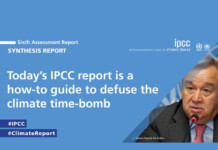
Almost all companies today are certain that there is no option but to proactively declare their complete Environment, Social and Governance (ESG) impact. More importantly, they also realize that they should declare how their boards approach governance frameworks. And diversity, equity and inclusion (DEI) are moving from good-to-have to becoming strategic as managing talent takes primacy.
Maureen Bujno and Kristen Sullivan of Deloitte & Touche list the above as the most significant ESG trends in their March 26 post on the Harvard Law School Forum on Corporate Governance site. Excerpts from the post:
ESG nondisclosure nears extinction – Based on Deloitte’s proxy research of S&P 500 companies, only 3% of companies did not disclose information about their overall ESG board governance approach in 2022, down sharply from 14% in 2021 and 28% in 2020 (figure 1). This likely is due to the continued maturation of ESG frameworks and capabilities, coupled with the anticipation of pending SEC rulemaking.
Trends in primary committee oversight of ESG – The nominating and governance committee remained the most common choice for sole or primary oversight of ESG at 63% of reporting companies, up from 53% last year. Fifteen percent of companies placed primary responsibility for ESG on a dedicated ESG/ sustainability committee, similar to the 13% in 2021.
Multicommittee/board ESG frameworks on the rise – In prior years, Deloitte’s proxy research focused on the primary committee overseeing ESG. This past year has been marked by significant enhancements in the depth and detail around ESG proxy disclosures and related governance frameworks. Based on our research of S&P 500 proxies, 51% of companies reported that either the full board combined with a committee(s) or multiple committees have responsibility for overseeing aspects of ESG activities. This multicommittee approach reflects a growing recognition that the complexities of ESG often overlap with numerous committees and that their responsibilities may best be addressed accordingly.
As an example, the proposed SEC rule on climate risk disclosure is significant to audit committees given the direct connection to financial reporting, but the considerations encompass a broader range of topics. Measures such as decarbonization targets can have an impact enterprise-wide across strategy, finance, talent, governance, operations, risk, and compliance. Similarly, when defining the “S”—Social—in ESG, many companies note their goals regarding diversity, equity, and inclusion (DEI) initiatives. While DEI could be framed as a talent or culture matter, for many companies, it is a strategic objective—the talent pool needed to achieve a long-term strategic goal—and it also could be framed as a key imperative of human capital disclosures, or even considered a governance matter about board diversity. This reinforces the importance of management and the board transparently articulating how the elements of ESG are defined for the organization from a strategic and value creation perspective.
Questions for Audit Committees to Consider
- Have management and the board agreed on what ESG means for the organization?
- How is ESG defined and how is the board’s governance structure aligned around ESG from a strategic perspective?
- Is there a clear division of responsibilities among the board and its committees regarding the various components of ESG?
- What framework is in place for coordinating ESG activities across geographies and business units and avoiding the siloing of potential topics?
- If a single committee currently is charged with overseeing ESG, will it be able to handle the wide-reaching complexities of ESG components and disclosures as reporting transitions from voluntary to mandatory?
- How often are ESG topics on the agenda of the appropriate board committee(s), and what level of information is being presented?
- Is the company prepared to disclose the oversight structure for climate risks?
- Who on the board has experience in climate risk matters? Is the audit committee equipped to review climate risk and other ESG disclosures effectively?
- Does management’s presentation and reporting of ESG-related information meet the board’s and audit committee’s requirements to understand the company’s related risks and opportunities?
- To what extent is the finance organization involved in building and strengthening the control environment for climate disclosures?
- What adjustments, if any, will be needed to align greenhouse gas emissions reporting and other reporting with the 10-K?
See full report here https://bit.ly/436R5la
Support Green Journalism
SustainabilityNext crossed its 100th Edition in October 2022. Since April 2013, every month, SN has been publishing action-oriented green entrepreneurial stories, sharp interviews with change leaders and incisive book reviews. We wish to make it a fortnightly shortly.
SN Youth, launched in June 2021, is turning into a platform for the youth to share their green journey and inspire others.
SN launched India’s first Green Literature Festival in July 2021 to celebrate and grow environmental writing and reading among the youth, executives and entrepreneurs.
You will agree that only awareness is not enough. The world today needs action NOW to save itself. Support our efforts to drive climate action by reaching a million readers by December 2023.









